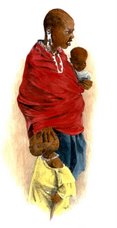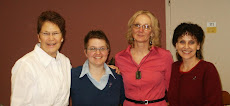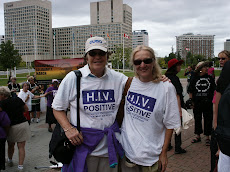Granny Bulletin July 6, 2007
The Granny Bulletin is an update on the Grandmothers to GrandmothersCampaign, intended to keep grandmothers' groups across Canada informedabout, and connected to, the grandmothers and grassroots projects in Africa,that are supported through their dedicated fundraising and awareness-raisingefforts. Happy Summer Friends!We have promised to keep you up-to-date on the excellent work being done inAfrica by and on behalf of grandmothers. We remember and appreciate thatthis is something you need as you continue to organize brilliantly in yourcommunities. In this bulletin, we will share three profiles on different,yet equally inspiring projects in Zambia, Uganda and Tanzania. Theseprojects represent only a small sample of the many incredible projectssupported by the Foundation (through your fundraising and solidarity) acrosssub-Saharan Africa.Ranchod Hospice - Busy Bees, ZambiaZambia, like other countries in the Southern Africa region, has not beenspared the devastating effects of HIV/AIDS. In fact, this region remainsthe global epicentre of the pandemic. According to UNICEF figures, thereare currently over 700,000 AIDS orphans living in Zambia alone! It isagainst this backdrop that the Busy Bees came into existence and continue towork. If you've seen the SLF film "Grandmothers: The Unsung Heroes ofAfrica", you've seen Matilda and the Busy Bees honoured.Housed on the Ranchod Hospice compound in Kabwe, Zambia, the Busy Bees is anever-growing support group for and by women, mostly grandmothers, who areinfected or affected by HIV/AIDS. A great number of them are caring fortheir orphaned grandchildren. They meet every day in the shade of a leafytree and together they share their worries, their grief, their strength,their skills and their talents. Since the formation of the group in 2004,they have soothed each other's sorrows, allayed each other's fears, listenedto each other's worries and shared in their triumphs - both individual andcollective. They have also produced mountains and mountains of crafts -everything from knitted sweaters to beaded necklaces; from ornate dolls toembroidered food coverings - all for sale mostly in local-area markets. The group's resourcefulness is limitless, inspired by their need to create asustainable source of income - income that will feed, clothe and sheltertheir families, income that will allow them to buy the necessary medicationsfor their orphaned grandchildren and send them to school, income that willperhaps ensure that the children in their care will not be left destituteafter they are gone. It is in this spirit of resourcefulness that the BusyBees have been enthusiastically looking to the future, continually thinkingabout and planning for more creative and reliable sources of income. Through their discussions, they identified Kabwe's need for moreprofessional tailors. They also recognized the collective wealth ofexperience they have in vegetable gardening. Long-term plans were made,research was undertaken and the Stephen Lewis Foundation is happy to haveresponded to their request for a grant that has allowed the group to:* get training in advanced sewing skills* purchase sewing and knitting machines* purchase materials that will allow them to successfully fulfilsewing contracts * get agricultural training* purchase equipment and fertilizer to help tend their vegetablegardenSince then, the Busy Bees have been hard at work; here are a few words fromour project colleagues in Kabwe: Mary:"I went with the Busy Bees to visit their agricultural project on Saturdayand was very impressed with their efforts. They have a large cabbage patchalso green beans, spinach, onions and tomatoes all ready for eating.Tomorrow we are going to buy seedlings for their extended patch alreadycleared and ready for planting. There is an excellent supply of water onhand, they cycle there 3/4 times weekly to water and weed."Hilary:"They are so excited at what they are accomplishing together ... All thatto say the SLF funding has certainly made a remarkable difference to theirconfidence and livelihoods (without even getting into the tailoring andknitting they are now doing!)."Reach One Teach One Ministries (ROTOM) - UgandaROTOM has been in operation for four years and in this short time hasestablished itself as a highly effective organisation meeting the needs ofimpoverished older persons in Uganda. Traditionally, Ugandan socialstructure was built around extended family and community. This networkprovided a safety-net for the society's most vulnerable members. With theAIDS pandemic eroding much of this structure, and with no other formalsystem to fill the gaps, the elderly and orphans have been left particularlyimpoverished and neglected. According to ROTOM's figures, 64% of Uganda'selderly live in absolute poverty and over 50% of seniors in their programare caring for orphaned grandchildren.ROTOM exists to provide support to the elderly. This ranges from social,spiritual and emotional support to economic and physical support. Morerecently, ROTOM has also taken on an advocacy and lobbying role which hasincluded the organizing of the first ever National Symposium on Aging inUganda and petitioning the speaker of Uganda's parliament to put "elderissues" on the table for discussion. Some of their achievements in the last four years include :* Over 3500 hot and nutritious meals delivered * 16 funerals sponsored for families unable to afford the costs* over 2500 home visits to the elderly and the children in their care* over 115 mattresses providedRecently, ROTOM established a grandmothers support project in the Kabaledistrict, located in southwest Uganda, for a group of 100 grandmothers.This support will not only improve the mental and physical health of thegrandmothers, but will also directly improve the lives of the orphans intheir care. With funding from the Stephen Lewis Foundation, the project'saim is to provide food, counselling, routine medical checkups,income-generating projects plus school fees and educational support to atleast 200 orphans in grandmother care. The project has taken off beautifully and the delivery of food is wellunderway as is medical treatment. Support groups that meet every two weekshave been established and are proving to be highly useful and meaningful tothe grandmothers. They decided to raise animals (chickens, goats, sheep,pigs) as a source of income, and already the grandmothers have been trainedin this area and the animals have been purchased. A few words from ourcolleague at ROTOM :The work of grandmothers' support project is going on well and on schedule.Last Wednesday I was in the project area and while driving in the village wemet a group of girls in school uniform coming from vocational classes intailoring, cookery, etc.I was overjoyed when the project officer (Erican)quickly asked to stop so that we could say hullo to them. these girls areamong the 31 teenage orphans ROTOM grandmothers support project sponsors toattain vocational skills.(there is also another 70 in primary schools) Whenthe girls saw us, they were all happy and proud to be back in school. Someof them had been out of school for long because their parents died of AIDS.I jokingly asked each of them to make for me a shirt when they finish theircourse and they were quick to say; "yes sir!"Combating HIV/AIDS in Tanzania (CHATA) According to the December 2006 UNAIDS Epidemic Update, Tanzania is one ofthe countries most affected by HIV/AIDS. There are 1.1 million AIDS orphansliving in Tanzania. UNAIDS projects the number of new HIV infections in therural areas, where close to 75% of the country's population live, could betwice as high as in urban areas by 2010. According to CHATA's reports, thesituation is getting worse in the rural areas where they work, (Arusha andManyara) due mainly to a lack of proper HIV/AIDS education, high levels ofstigmatization of those infected and affected by HIV/AIDS and increasingpoverty. Furthermore, access to social services and health care services isvery limited. CHATA's work focuses on these issues by focusing on HIV/AIDSprevention and care, poverty alleviation and advocacy and support forvulnerable children and grandparents. With the support of the Stephen Lewis Foundation, CHATA has launched aproject that focuses specifically on the health as well as the social andeconomic status of AIDS patients and their families. This will be donethrough three main areas: * Improving accommodations for the elderly and for orphans* Creating a strong and sustainable infrastructure around which thecommunity can provide home-based care to the ailing* Provide education, social-economic and humanitarian support toorphans and vulnerable childrenOne of the Stephen Lewis Foundation's Field Representatives went to visit atypical household that would directly benefit from CHATA's services. It isa child-headed household with 14-year-old Christina as the caregiver to hertwo younger brothers: 8-year-old Simoni and 7-year-old Tobias. They havebeen living alone since 2002, which means Christina was only nine or ten andlooking after two toddlers! They live in a small, damp, windowless mud hutwith a leaky roof. Their day-to-day lives are extremely precarious - nofood security, no fuel to cook what little food they occasionally have, noblankets to protect them from the cold and damp. An excerpt from Lucy'sreport: I was told that several family members offered to take in one of thechildren, effectively splitting up the family group, but Christina hasalways refused. When I asked Christina about this, she confirmed what Iheard. "Yes," she said. "I promised my mother that I would not leave thishouse and I would not leave my brothers... Also, my mother and father areburied just to the side of the house and I don't want to leave them." Byrepairing their home, CHATA would not only improve the health of thesechildren but would also allow Christina to fulfill her promise to hermother.For more information on the situation of orphans and grandmothers in Africa,get copies of our films Grandmothers: The Unsung Heroes of Africa and AGeneration of Orphans.Visit www.stephenlewisfoundation.org for more information.
Thursday, July 12, 2007
Subscribe to:
Post Comments (Atom)







No comments:
Post a Comment